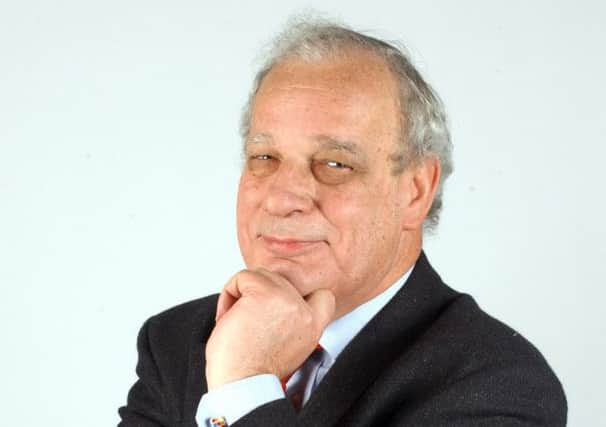Comment: Don’t let December be the cruellest month


This confident mood barely lasts a month, never mind a year. There is nothing about investment planning at the end of December that is any more intuitive or judiciously informed than at the end of June. We save for the future in the hope that over time our nest-egg will rise in value: does not the stock market always rise over time?
Well here is a humbling truth.
Cast your mind back 15 years. It’s December 1999. We’re in the grip of the Millennium Bug scare (it didn’t happen) and the Millennium Dome is about to be opened to universal acclaim (it wasn’t). And in Russia Boris Yeltsin reigned supreme (but he didn’t – resigning as president at the end of the month and handing over as president to Vladimir Putin).
Advertisement
Hide AdAdvertisement
Hide AdThere was another event. The UK stock market hit a high of 6,930. If you had arranged your financial affairs in that month and put £10,000 into the stock market, then surely after 15 years you would have amassed quite a sum.
Au contraire. The dot-com bubble burst within weeks. Within 18 months we were plunged into a sharp recession. The stock market fell by almost 40 per cent. And six years later we were hit by the global financial storm. The market plunged again.
Now we have enjoyed a five-year recovery. But even after this we would still be down on that December 1999 burst of financial planning. As the ever insightful Money Morning website points out, that £10,000 would by now have grown to, er, £9,137. And after adjusting for inflation some 50 per cent of its spending value would have been lost.
Now it’s easy to throw up one’s hands in despair. If forecasting is a mug’s game and the advice of experts little more than castles in the sand, why bother with investment at all? That would be the wrong conclusion. Investors would have done much worse by doing nothing and just holding onto cash or sticking with a low-interest savings account.
And investors would almost certainly have fared better sticking with income orientated equity funds and trusts: the re-invested income would have made good the capital loss in both real and nominal terms.
In any event, most private investors now are well diversified, with savings spread over fixed interest and bonds as well as equities – and, of course, property. The merits of diversification are seldom more apparent than now, with sharply conflicting views as to what 2015 will hold.
The sanguine view is that lower oil prices will boost both household spending power and corporate earnings. And they will also work as a counter to the global growth slowdown that has been a big worry in the market of late. In the UK the upturn still has considerable momentum.
But the counter-view is unsettling. This is that after five years of rising values, the stock market is losing momentum and the volatility of recent weeks is evidence of investor concerns about its ability to ride out setbacks in the new year. The oil price plunge is deeply unsettling for geo-politics. Russia is wrestling with a collapsing currency and economic recession, with all manner of negative implications for Europe. At the same time there seems to be no respite in Islamic terrorism, while the cyber-attack on global media giant Sony reveals a worrying vulnerability of Western governments and institutions.
Advertisement
Hide AdAdvertisement
Hide AdAnd on top of all this is the prospect of political gridlock and chaos at home in the wake of the May general election. All told, there is little here that suggests 2015 will be a tranquil year.
That is all the more reason for investors to avoid an end-of-year plunge, to diversify their savings geographically and by asset type, and to spread investment appraisal and decisions over the full 12 months – not just a frenzied burst over the Christmas period.
SUBSCRIBE TO THE SCOTSMAN’S BUSINESS BRIEFING